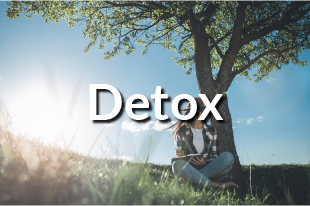Recovery from alcoholism requires healing the body and mind from the damage caused by heavy and frequent alcohol consumption. Through a rehab or treatment program, individuals suffering from alcohol addiction completely stop drinking alcohol and work on recovering from the need for constant drinking.
An often overlooked aspect of the healing process is nutrition. Through proper nourishment, individuals repair their body, stabilize their mental health, and support their journey to sobriety.
How Does Nutrition Help with Recovery?
When an individual stops drinking alcohol after frequent and prolonged alcohol abuse, their body experiences significant changes associated with the withdrawal. Not all of these changes are positive at first, as withdrawal symptoms can often be difficult to experience. They include difficulty sleeping, nausea, headaches, and delirium tremens.
Nutrition plays a key role in alleviating symptoms of withdrawal while helping to heal the body. The benefits of nutrition in recovery include:
- Repair damaged organs: particularly the liver, pancreas, and gastrointestinal tract
- Rebuild muscle mass and body tissue: oftentimes individuals suffering from alcoholism experience deteriorating muscle and body tissue with drinking
- Stabilize mood and mental health: certain nutrients act in support of neurotransmitter production
- Reduce cravings: Alcohol cravings are often triggered by blood sugar imbalances and nutrient deficiencies in someone who drinks frequently
- Strengthen the immune system: chronic alcohol abuse often leaves the immune system more vulnerable
Focusing on a nutrient-dense diet in recovery will help restore balance, energy, and overall well-being.
Nutritional Deficiencies in Alcoholism
Frequent and chronic alcohol abuse often leads to a level of malnutrition. Alcohol itself interferes with nutrient absorption and your metabolism, even when the food intake itself is filled with nutrients. Some of the most common deficiencies in those suffering from alcoholism are:
- Thiamine
- B6
- B12
- Magnesium
- Zinc
- Folate
- Protein and amino acids
Nutrient deficiencies can contribute to symptoms like fatigue, depression, nerve damage, and a poor immune system.
Thiamine Deficiency in Alcohol Abuse
Thiamine deficiency is a deficiency in vitamin B1 that can lead to a slew of health issues. This is a common deficiency in individuals with alcohol use disorder (AUD) that can lead to Wernicke-Korsakoff syndrome, heart problems, nerve damage, and even cognitive issues like confusion and memory loss.
Individuals recovering from alcoholism through a detox program may receive supplements to help reduce thiamine deficiency.
Nutritional Therapy for Alcoholics
Nutritional therapy should be tailored to each individual person suffering from alcoholism. Depending on other factors like lifestyle and regular dietary preferences, not every alcoholic deals with the same level of nutritional deficiencies.
Treatment programs, rehabs, detox programs, and even diets post-treatment may include medical nutrition therapy from a registered dietician, supplements, nutrient-rich foods and whole foods, and hydration support to recover from dehydration.
By focusing on nutrition as a part of the recovery process, individuals recovering from alcoholism are taking preventative measures against conditions like liver disease and diabetes.
Diet Tips to Recover from Heavy Alcohol Consumption
If you are in recovery for alcohol addiction or support a loved one who is, here are a few dietary tips that can make a difference:
-
- Eat regular meals. This helps stabilize blood sugar and energy levels while helping add nutritional value back into the body with each meal.
- Focus on nutrient-dense foods. Oftentimes, individuals in recovery focus on whole foods, leafy greens, berries, lean meats, and other foods that help recover nutrients to the body.
- Avoid high sugar and ultra-processed foods. Same with the recommendations for many healthier lifestyle diets, avoid foods that can be too high in sugars or sodium, which can worsen mood swings and cravings.
- Stay hydrated. Dehydration is often associated with AUD. The recommended daily amount is about 15.5 cups for men and 11.5 cups for women.
- Include probiotics. This can help restore gut health and prevent gastrointestinal issues.
Choose supplements carefully. Any vitamins or other nutritional supplements used to aid the body in recovery should be approved by a medical professional to ensure you are taking the safe dosage for your body’s needs.
Recovery from alcohol addiction is not just about eliminating alcohol. It’s also about restoring the body and mind to a healthier state and taking up a healthier lifestyle post-treatment. Alcohol can cause a lot of physical damage to the body. Nutrition plays a vital role in recovering from that damage to live a healthier life for years to come.









